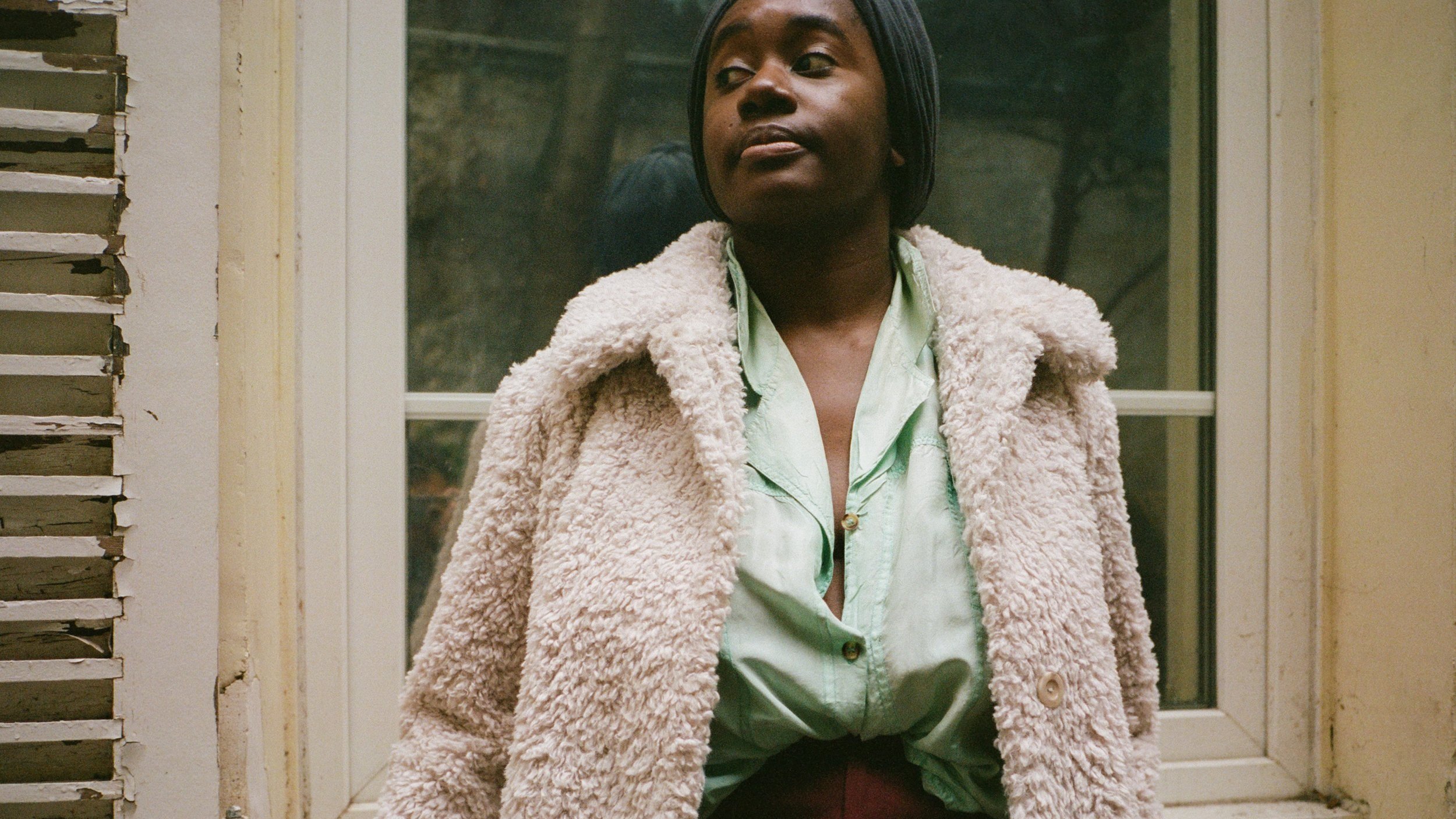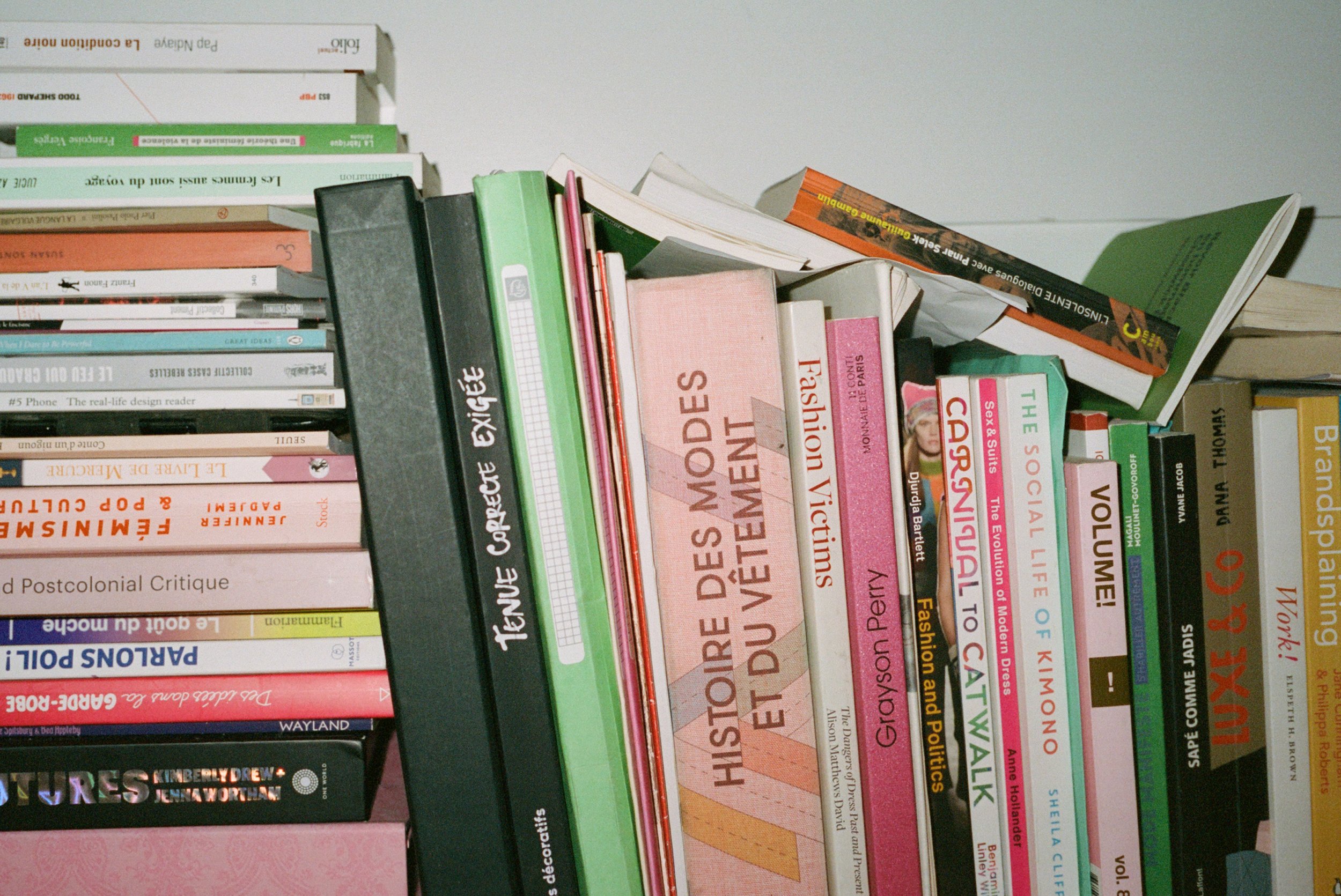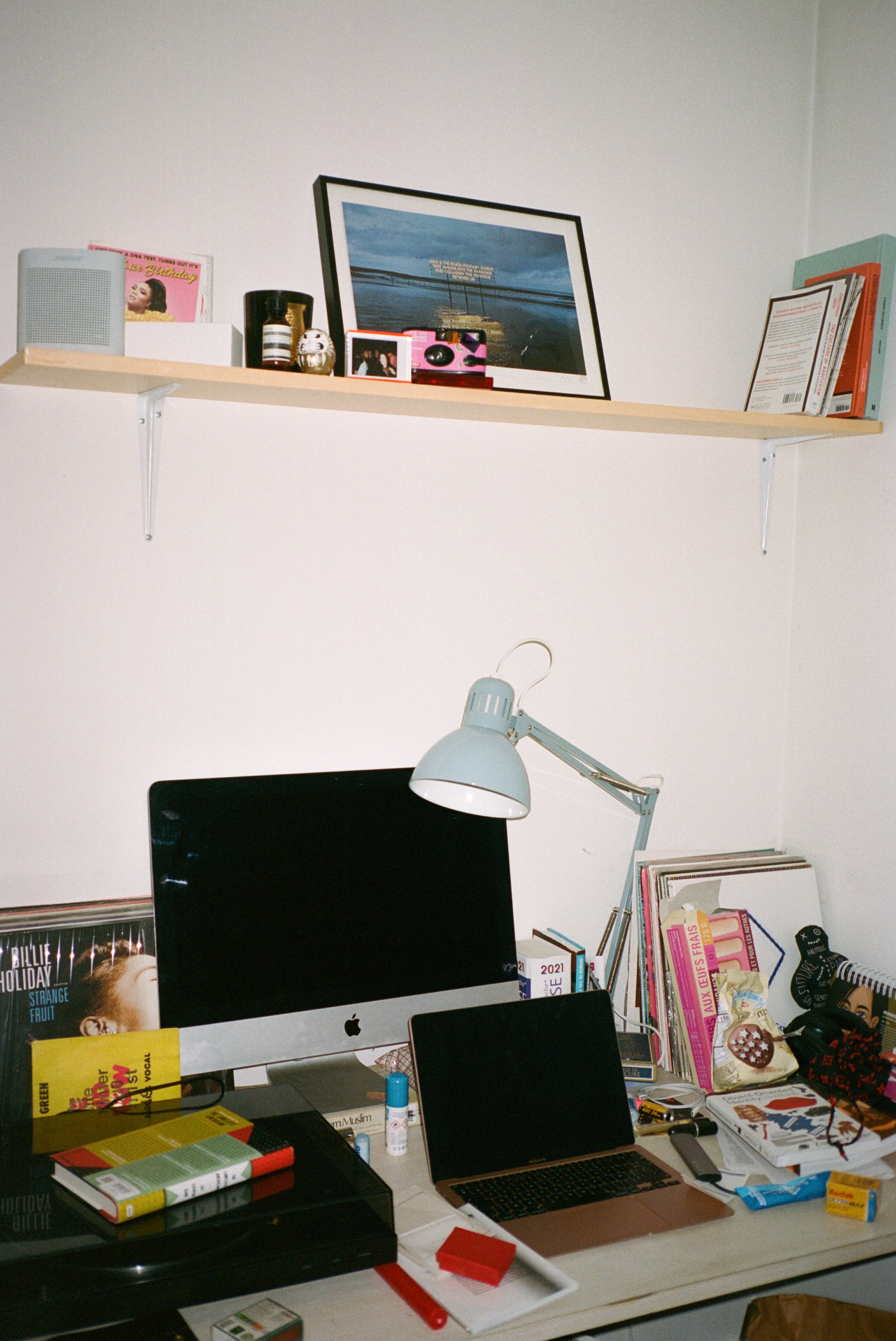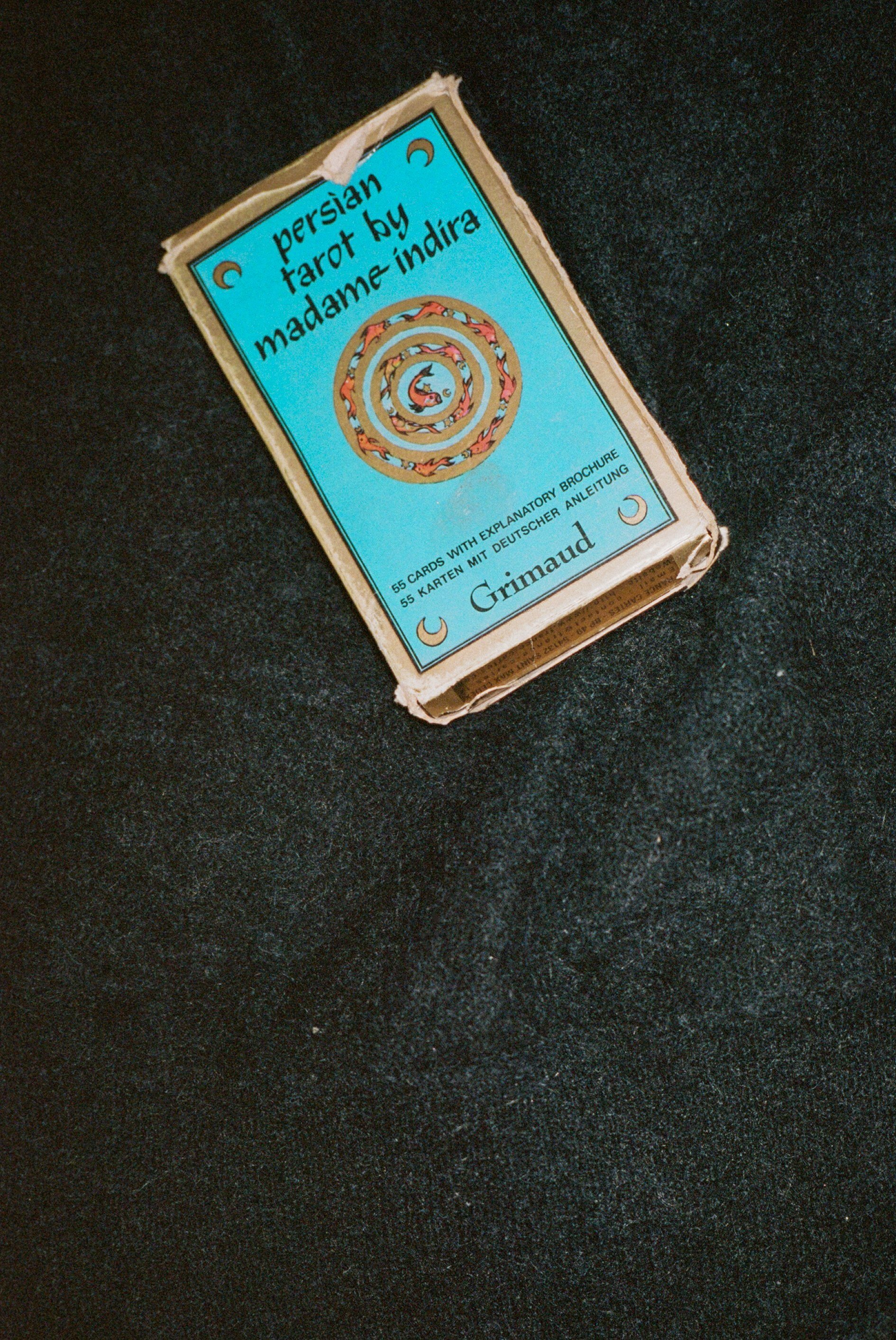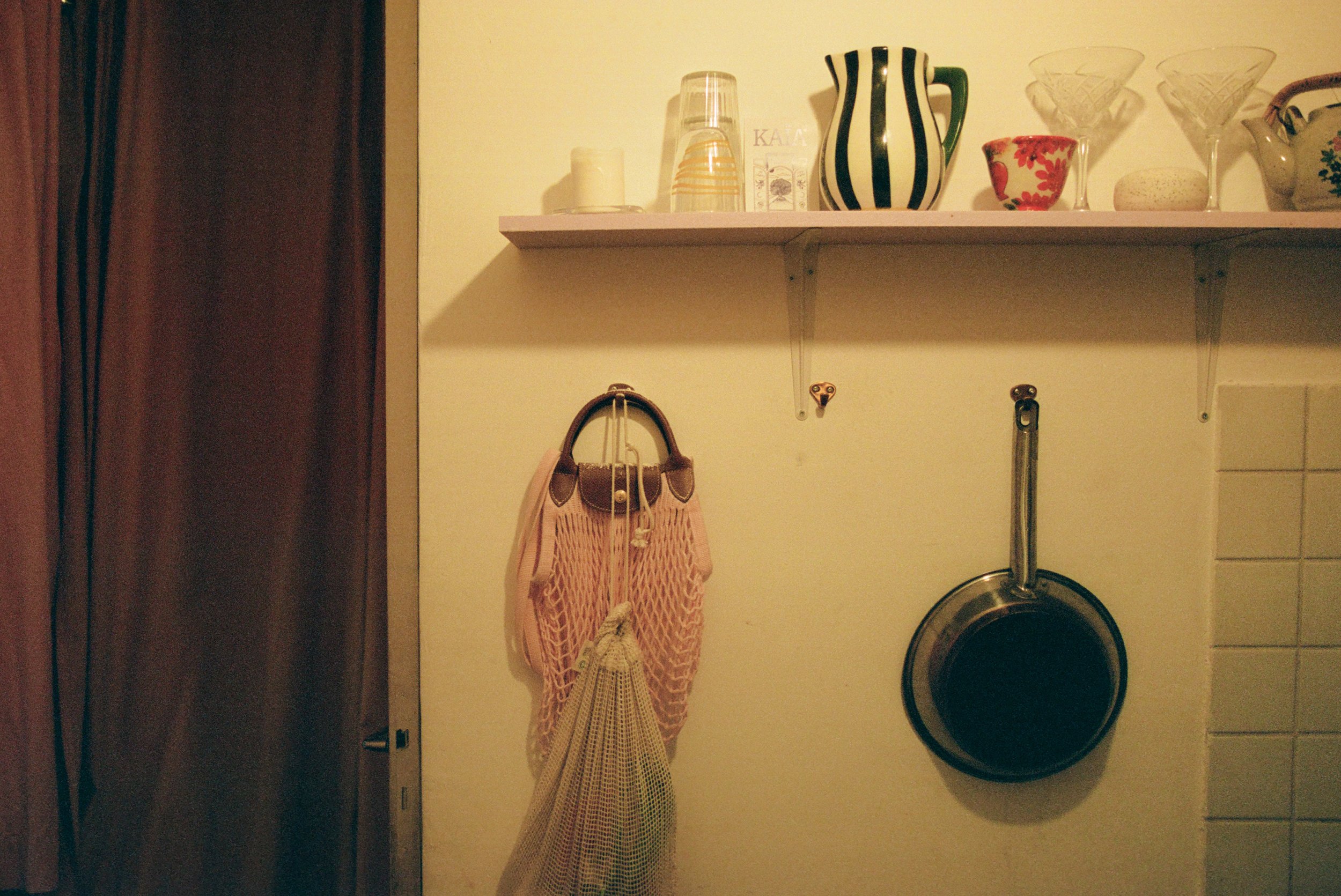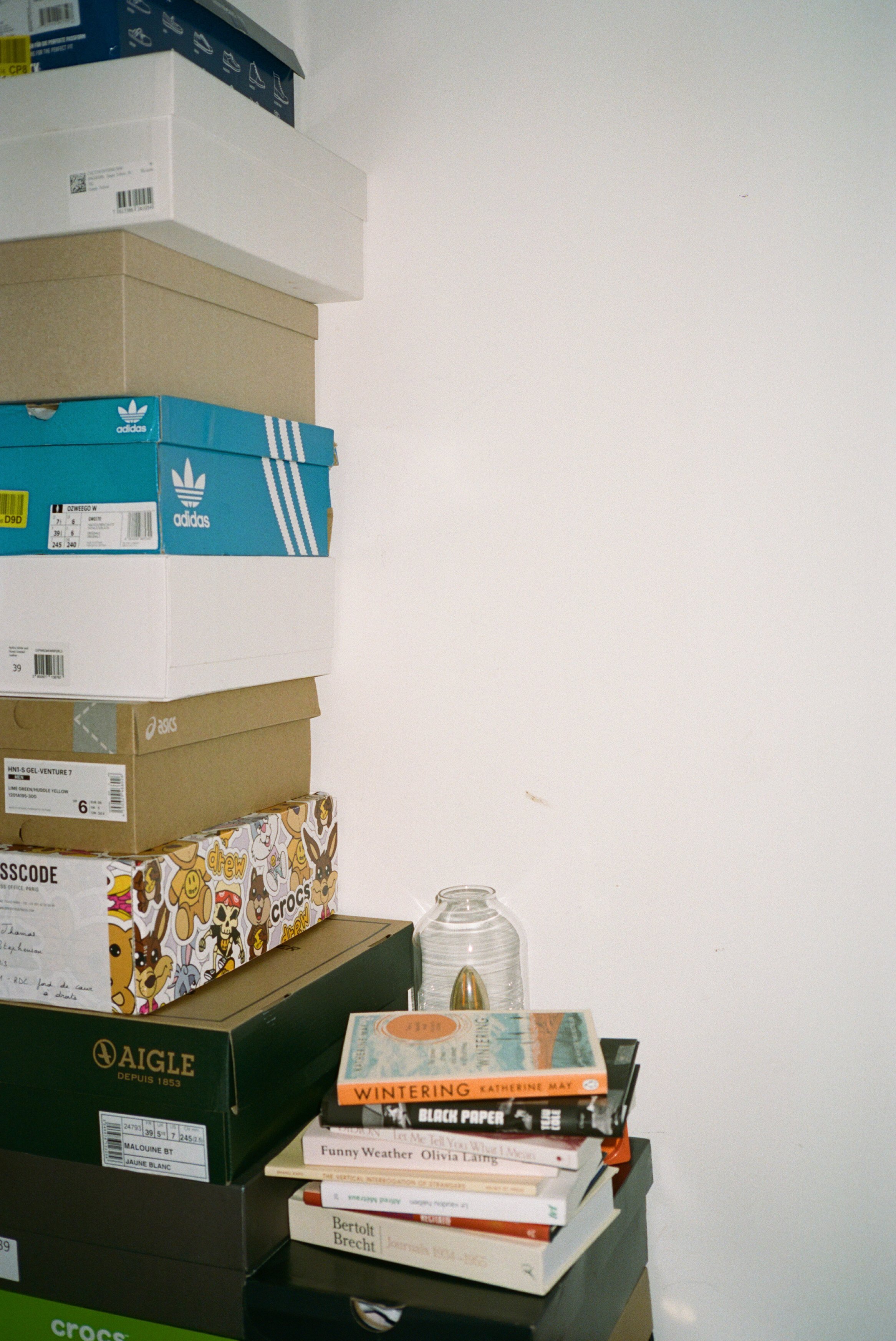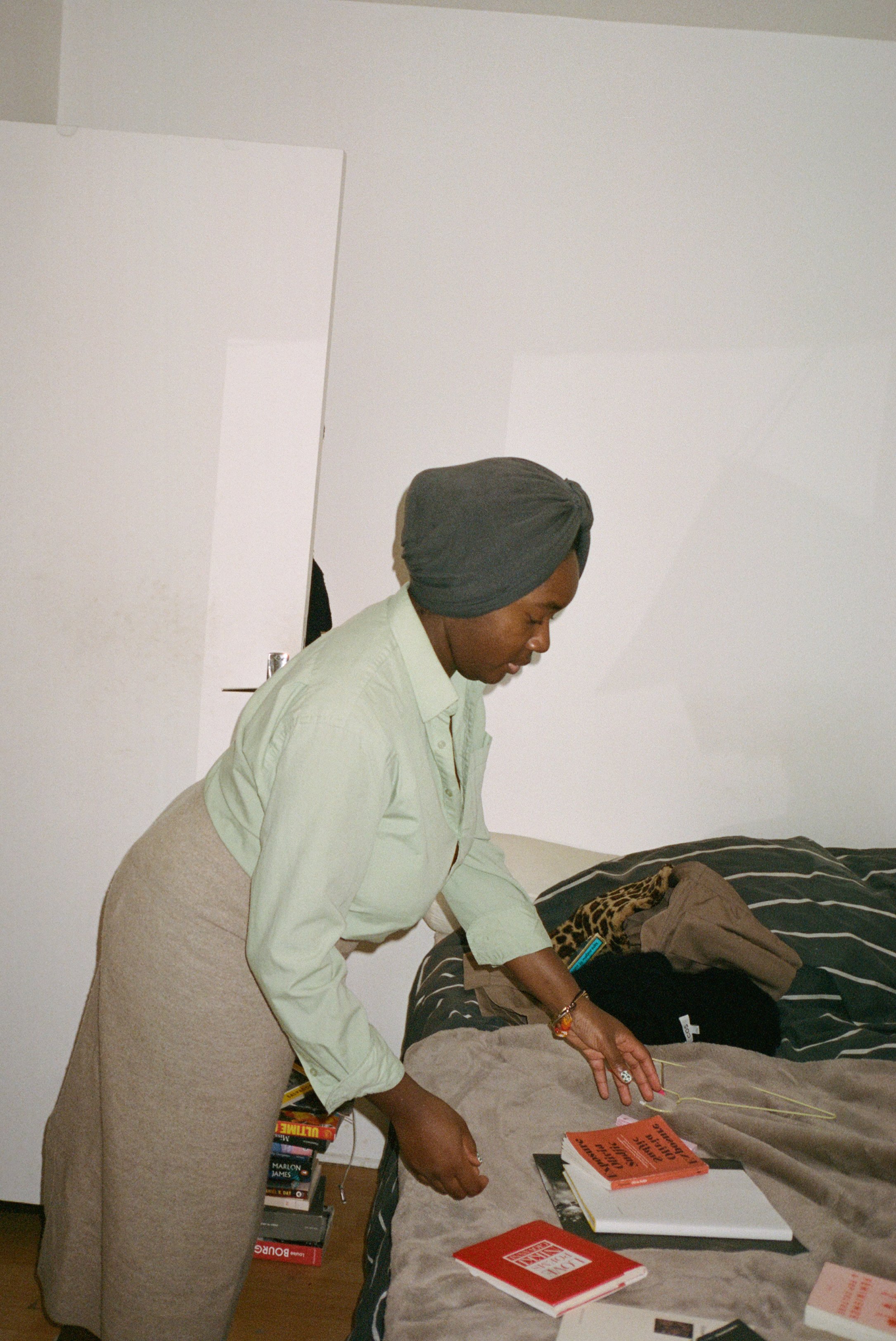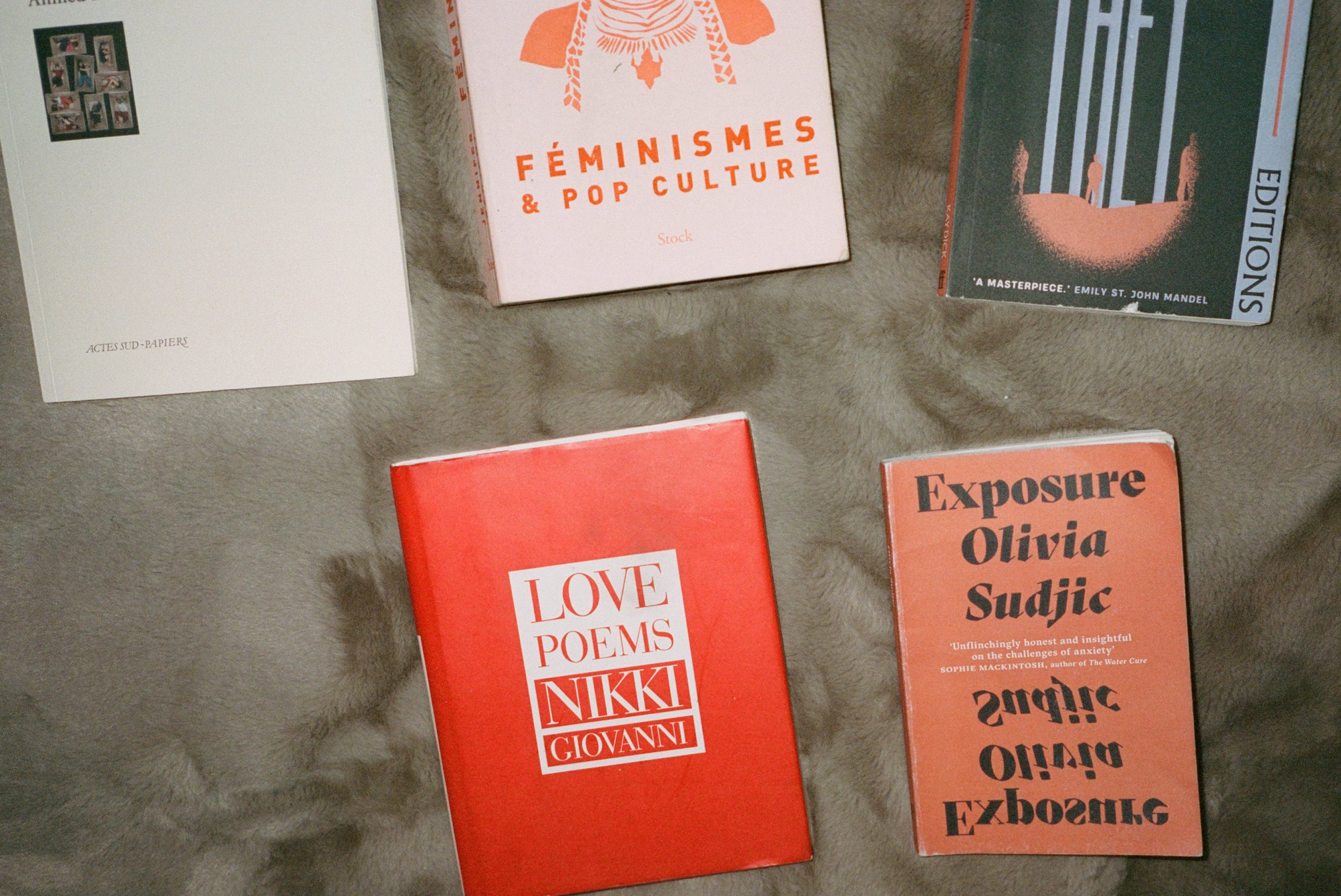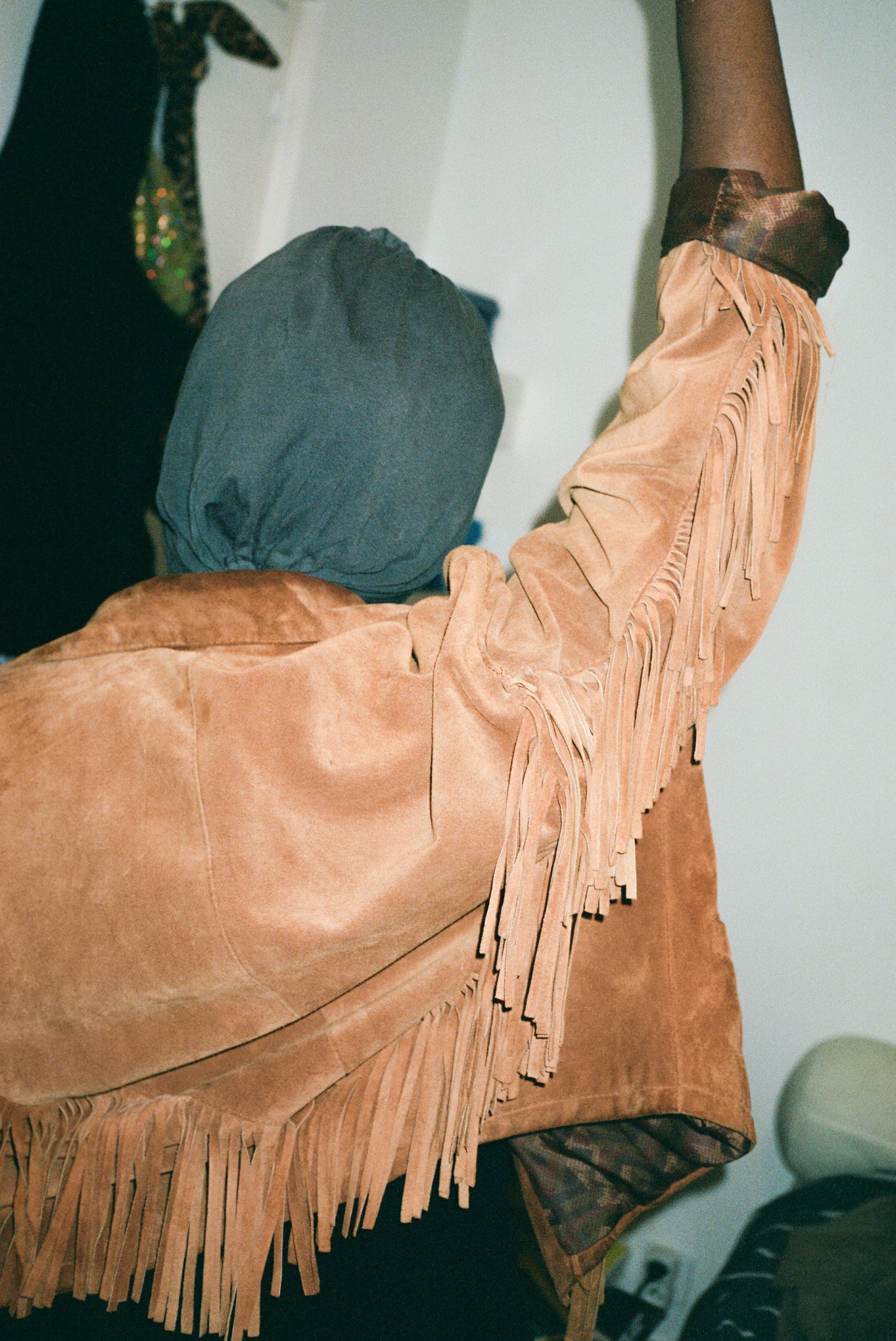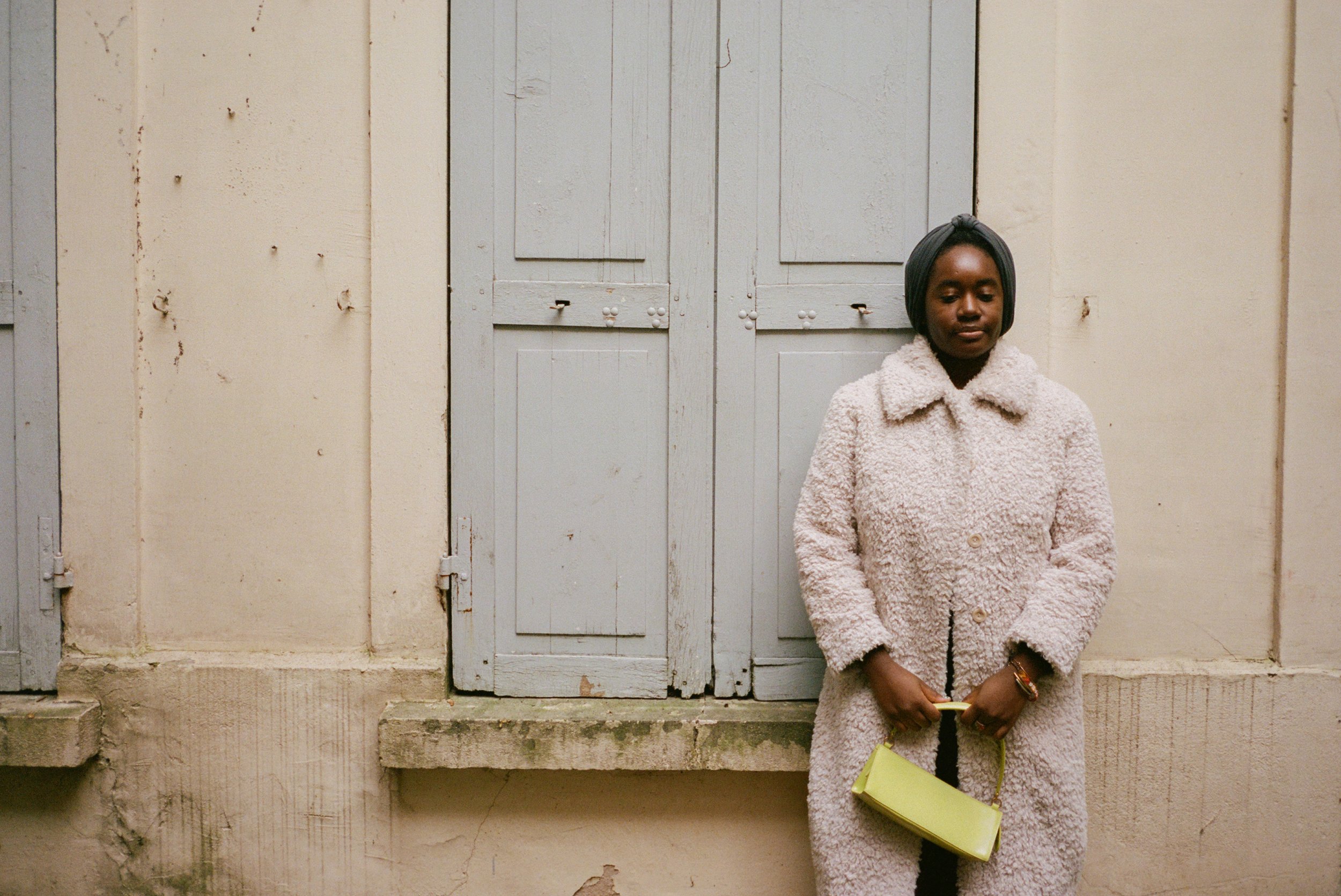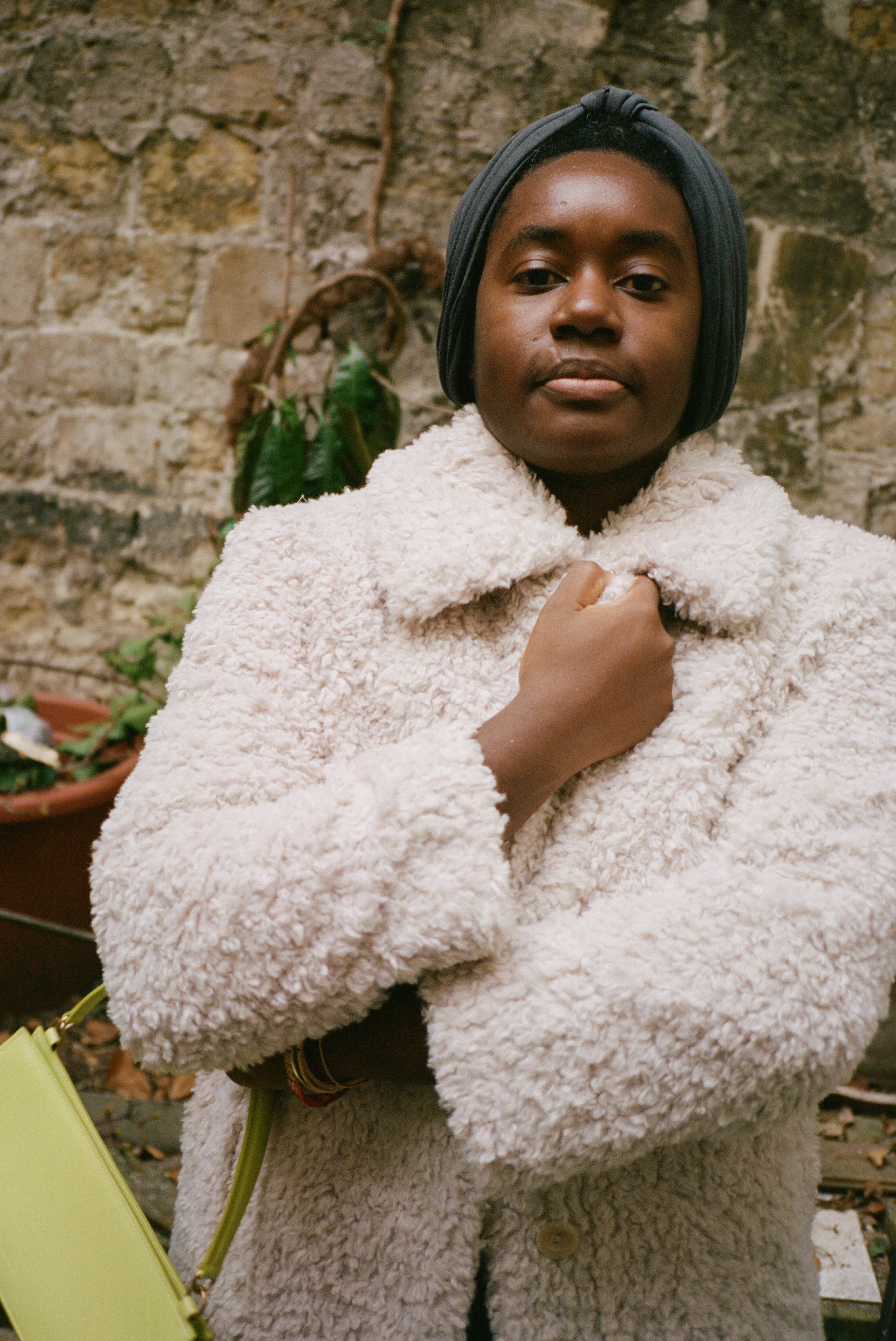Self-described as a “creature of habit,” fashion journalist Mélody Thomas is most often found at the neighborhood bistro down the street from her cozy home in Paris’s 18th Arrondissement. That’s also where she wrote much of her forthcoming book, La mode est politique, or in English, Fashion is Political. In it, she analyzes ideas that she’s been chewing on for ten years — namely, the “intersections between women, fashion, and power” — by creating a lexicon of 27 words, ordered alphabetically and each complete with an essay. Ahead of the book’s release, we spoke to her about how she found the motivation and time to write it while also working as the Head of Fashion at Marie Claire.fr and teaching at Parsons Paris, her early archaeological dreams, and the importance of receiving good criticism.
♫ Listen to mélody's playlist | ⌨ mélody's last google search
on her morning routine
It’s been difficult for me to sleep lately, but I wake up around 7:30am. I open my window to get some fresh air and then start washing and dressing. I’m not a morning person, so the idea of organizing my morning around a stop for my café crème before taking the subway seems like a lot of investment.
on her upbringing on the west coast of France
I grew up in a small town around Nantes. My mom was a teacher’s assistant for a primary school, and my dad worked for a bicycle factory. There was not a lot to do other than walk around and play in the garden, so I read a lot. I love the countryside but have never been really outdoorsy; I’m more the “let’s read and have a snack outside” type. So, my childhood was mostly reading, learning how to dance in front of MTV, and listening to a lot of music with my sister.
on early fashion memories
The first memory I have that relates to fashion is of my mom putting on her beautiful camel coat for Sunday mass. It was one of the rare moments where she put on lipstick and added jewelry. She transmitted to me the importance of looking your best on certain occasions. Fashion was a way to stand proudly in different spaces. No matter where we were going, she made sure we were always well dressed and looking good. I think as a white woman with adopted black kids in the ‘80s, she knew that we would be the target of a lot of things. Fashion and appearing your best was, and still is, a protection for me.
““I wanted to be an archeologist because my mom gifted me a book on ancient Egypt and Egyptian gods and goddesses. I was obsessed and found so much mystery in it, especially because of the Rosetta Stone. The idea of discovering an ancient language… It still blows my mind, to be honest.””
on university, breaking into journalism, and criticism
I studied Modern Literature for two years but hated the grammar and linguistics classes, so left to study Communications in Bordeaux. There, I launched a cultural webzine with a friend, saw a lot of concerts, and partied… It was fun. The webzine allowed me to write more frequently and publicly — my friend and I anonymized ourselves, so we were free of other people’s judgments. I loved university because I could use my time the way I wanted to. I always craved agency and the ability to say, “today I’m not going to class; I’ll go to the movies or read all day and have coffee with a friend.” This was a dream for me.
It also gave me a foot in the journalism industry — one of the magazine internships I took is where I learned how to write professionally. I still remember the first time I was assigned an article. The editor in chief printed my feature, and she had notes — lots of them. Some people might have felt demoralized, but I was excited. Notes meant I could improve. We lack this kind of feedback now. When I send an article as a freelancer, I always say, “you can say it if it sucks.” Even when working on my book, I can count the number of times I told my friends: “be harsh; it will be too late once it’s published, so if something doesn’t feel right, say it now.” Being criticized is never easy or nice, but it’s the only way to improve yourself.
on writing
I don’t remember a time in life when I was not writing. Like most people who start writing at a young age, you do it primarily for yourself. You have no idea if it’s good or bad — for me, it was mostly bad — you just try to make sense of a story, sometimes your story. I journaled a lot and had a love for words and their meanings. I daydreamed about adventures that I would then write in different notebooks (and finish none of them). I became convinced that I had to live something exciting if I wanted to have something interesting to say and captivate an audience the same way I was captivated by the books I was reading.
““I love teaching. I think it’s a reflection of the fact that I love to share. I love reading and watching tv shows and movies. I write to think and love to share what I’ve discovered with people. It sparks a conversation, and when I can hear what they think, I can defend my opinion or change it. This is how I look at teaching: you give your knowledge, but you also learn. This semester I teach 17 brilliant young women who come from different nations, from China to Mexico, to Scotland and the U.S. Together, we learn about why criticism is important, the difference between critiquing and bad-mouthing, and how our backgrounds and knowledge shape the way we think.””
on finding the time and motivation to write her book
I don’t balance my time, ha — I’m really work-driven and excited by new projects and new ideas. I’m not very organized, and I’m one of the annoying “let’s do everything at the last minute” types. I think it’s because I love to think about and sit with an idea for a long time, not writing anything until the last minute. Then, I’m deeply focused. When I say to people, “I’m working now,” I can’t stop to chat or anything else. Writing the book opened my eyes to this. I left Paris to spend a month in Rome because staying home meant allowing people to interrupt my process. Finding motivation after Italy, though, was really hard. The deadline was approaching, and it made me scared of almost everything: my own legitimacy, knowledge, and intelligence. My main fear was not being able to finish the book. I had to write all the time and learned to “block” moments: I wrote in the morning, at night, and on weekends. I haven’t had a real holiday — which for me is a no computer holiday — for almost a year. I had to write, re-write, correct, read, re-read in a really short time. I think the book showed me I wanted to do more slow writing, writing less in an emergency, which I’ll try to work on for years to come.
on advice for those aspiring to become writers
You have to love working and learning, to listen to the people around you, and to be able to keep in mind that you’re writing to know what YOU are thinking. I think lately, a lot of people write stuff they want people to agree with them on. I’d rather be wrong fighting for my ideas than right fighting for someone else’s without knowing why. One of my favorite teachers taught me the importance of asking a question by arguing that it’s a show of intelligence, not stupidity. Also, read. Some people might find it classist or elitist, but reading about anything and everything is what gives me ideas. Read about economics, politics, sports, entertainment… And don’t trust the algorithm.
““Last time I was sitting in my favorite café, I saw a man whose dog was jumping on his lap. I’m a bit obsessed with dogs but I also think I was struck by the genuine moment of love they shared. We need more of those. The next time our paths cross, I’d like to ask the name of his dog, to be friendly in the neighborhood.””
on keeping up with her friends and family
I have a full social life because of my job and since I love to meet people. As for my family, I'm the only one living far away from home, so I miss a lot of events and feel like a bad daughter, sister, and aunt. I love them, though, and try to call my parents every two weeks. Every minute I spend with my three nieces (and their laughs) means everything.
on what she’s reading and how she keeps up with the industry
Recently, I read the excellent Exposure by Olivia Sudjic. It was good and appeasing to read about the anxiety of being exposed in the public eye. Now, I'm reading Identity by Francis Fukuyama and Funny Weather by Olivia Laing. I don't know if I have favorite books but I'm deeply into French writers like Marguerite Duras, Simone de Beauvoir, or Colette. I was thinking of re-reading Chéri by Colette — one of my favorite books about a dilettante boy. The Brontë sisters are also part of my most precious reading, as is Les Fleurs du Mal by Baudelaire. Because I studied French literature, I think it still shapes what I love about reading and writing, even though I mostly read in English now. There's also Pasolini, my favorite thinker, Dos Passos for his excellent memoir The Best Times, bell hooks… I could keep going.
I follow a lot of fashion magazines and critics on Instagram and Twitter, like Jordan Anderson, Pierre M'Pele, Louis Pisano, José Criales, Kim Russell, Alice Pfeiffer, and activists and teachers like Orsola de Castro and Céline Semaan. I read the style sections of The Washington Post, The New York Times, CNN, The Cut, The Business of Fashion, WWD, i-D, and Fashionista. I'm deeply into Bloomsbury Fashion Central and read marketing insights from McKinsey or JWT Intelligence. Also, I love history, so The Fashion and Race Database created by Kimberly Jenkins and Minh-Ha T. Pham's writing.
on her beauty routines
I love to try different things. In the morning, I wash my face, use Pixi Beauty Glow Tonic, then The Ordinary Niacinamide serum with niacinamide, CEO glow by Sunday Riley for the glow, Dr. Jart+ Ceramidin Cream, and Mixa SPF 50 with shea butter. I also love a good cleansing or hydrating mask, like Youth to the People's Superclay Purify Mask. I don't wear make up every day because I'm lazy. But I love a good mascara, blush, and lipstick.
on her style
Eclectic maybe. I can wear something really audacious one day and more classic the next. People who know me will know if I'm happy or unhappy based on how I dress. I avoid dressing in black and love colors. I mostly buy vintage clothes in shops like ByFlowers and Marchand d’habits. I'm not a Vinted person; I just love to see and touch the clothes. I'm also really into COS because it's classical with a twist. Despite my jobs, I'm not spending money on designer clothes, but I do love discovering young creatives on Instagram.
mélody’s favorite spots in paris
Restaurant: Le Bouillon Pigalle is still one of my favorites
Hair: It's always difficult to trust someone with my hair, but I really loved what @inescoiffure8 did at home
Museums: My favourite museums in Paris are Le Jeu de Paume, the Alaïa Foundation, and le Musée d’orsay
Magazines and bookshops: OFR or WH Smith for magazines. Librairie Galignagni for english books, and La Régulière or la Librairie de Paris for French books. And the library at Palais de Tokyo
images by clémence polès, interview by marina sulmona

